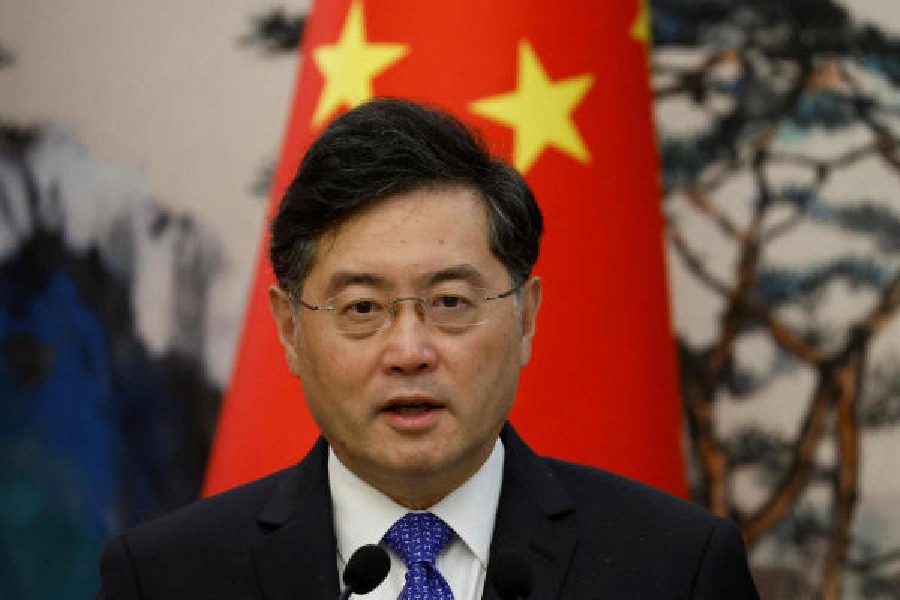Under normal circumstances, if the foreign minister of a country disappears suddenly, it would cause a great deal of concern. However, when it comes to China, all this is seemingly a common phenomenon. China’s foreign minister, Qin Gang (picture), was formally removed from office last month. His fall from grace was as quick as his rise to prominence in the corridors of power. Wang Yi was hastily re-appointed foreign minister in Gang’s place.
Incidents of sudden disappearance of celebrities have been common in China. But Gang’s case is rather special. Not only has he disappeared but his public records are also being erased. The Communist Party of China would like the world to believe that Gang never existed. The plight of critics in the communist regime is not a new thing. But this incident, featuring an official active at such a high level, is suggestive of the opacity that surrounds the Xi Jinping regime.
Gang was one of the most prominent faces of China. He was also China’s ambassador to the United States of America. Gang played an active role in handling US-China ties during a rather turbulent phase. As foreign minister, he had also met his American counterpart, Antony Blinken, a few weeks back. Gang’s departure from the post of foreign minister in a remarkably short period of time raises many questions, further strengthening the perception of instability within Xi’s regime.
Speculation has been swirling because of the opacity surrounding Gang’s removal. One of the reasons is said to be his increasing popularity. Others have suggested that since Gang’s ambassadorship to the US, his links with Washington had grown strong. Consequently, he was being viewed with suspicion by China’s Establishment. His alleged affair with a female journalist from Hong Kong has also been attributed as a reason for his removal. These may or may not be true. But one thing is certain: this episode will have a negative impact on China’s global image. This is because Gang’s departure would adversely impact China’s frenzied diplomatic activism after coming out of Covid constraints.
Gang’s ouster will also add to Beijing’s difficulties at a time when China is facing various internal and external challenges. China’s economy is currently sluggish. Economic growth has slowed down in the US and Europe, which are the principal pivots of China’s export-oriented economy. There is thus record youth unemployment in China.
Tensions with the US have forced China to woo Europe. But it has failed to wean European countries away from the American camp. In fact, Europe is turning against China in unprecedented ways as Germany’s recent strategy on China and Italy’s rethink on the Belt and Road Initiative indicate.
The increasing warmth between the US and India is also worrying China. Beijing is not sure how to manage India. On the one hand, China is harping on bilateral relations by citing the talks between Prime Minister Narendra Modi and President Xi Jinping during the G20 conference in Bali. On the other hand, it is issuing stapled visas for Indian players from Arunachal Pradesh. This exposes China’s double standards.
New Delhi has made it clear that it is unlikely to fall into the Chinese trap. The external affairs minister, S. Jaishankar, has reiterated that India-China relations are not in a very good condition and a major reason for this is China not adhering to its past commitments on the border. New Delhi has stated that a constructive dialogue would not be possible unless China restores status quo ante on the border.
For India as well as the rest of the world, the challenge increasingly is how to deal with a country like China under Xi Jinping. China is an ‘abnormal’ State. Qin Gang’s disappearance is only the latest manifestation of that abnormality.
Harsh V. Pant is Professor of International Relations, King’s College London










